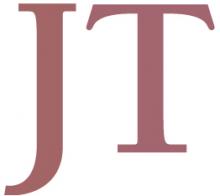Jordan Advances Energy Modernisation Vision and Regulatory Framework
Key Ideas
- The Cabinet in Jordan approved the 2024 general electricity draft law to replace the temporary law, focusing on aligning the regulatory framework with constitutional requirements and promoting competition and investment in the electricity sector.
- The draft law includes provisions for boosting investment in green hydrogen projects, introducing energy storage systems, and issuing energy source certificates to enhance energy security and support economic growth.
- An MoU was approved for the exploration of copper ore in the Ghor Fifa area to promote investment in the mining sector and establish Jordan as a regional hub for mining industries.
- Regulatory amendments were approved to streamline licensing for elderly care facilities and clubs, ensuring high-quality care for the elderly, and restructuring the Ministry of Social Development to enhance service delivery.
The Jordanian Cabinet, under Prime Minister Jafar Hassan, has approved the 2024 general electricity draft law to replace the existing temporary law from 2002. The new law aims to establish a permanent regulatory framework aligning with constitutional requirements and promoting competition and investment in the electricity sector. It also focuses on outlining the responsibilities of the Ministry of Energy and Mineral Resources in shaping a national electricity policy.
The draft law also includes provisions to promote investment in green hydrogen projects as part of the country's Economic Modernisation Vision. Additionally, it introduces measures to enhance energy security through energy storage systems and diversification of energy sources.
Furthermore, an MoU was approved for the exploration of copper ore in the Ghor Fifa area, aiming to boost investment in the mining sector and position Jordan as a regional mining hub. The government's efforts in the mining sector are seen as crucial for high-value industries and economic growth.
The Cabinet also approved regulatory amendments to facilitate the licensing of elderly care facilities and clubs, ensuring high-quality care for the elderly. Moreover, the restructuring of the Ministry of Social Development includes the establishment of new directorates and units to enhance service delivery and improve administrative capacity.
